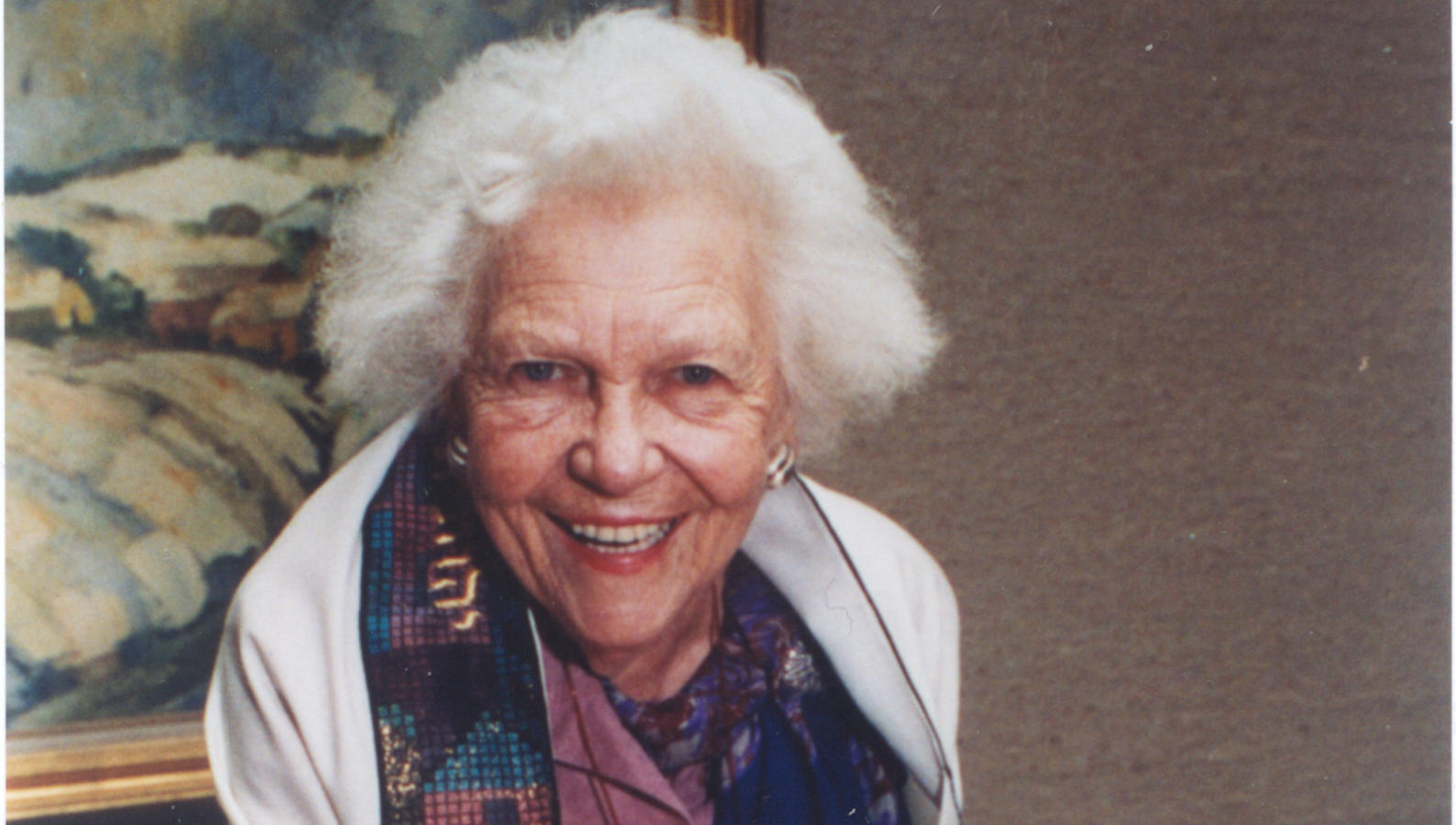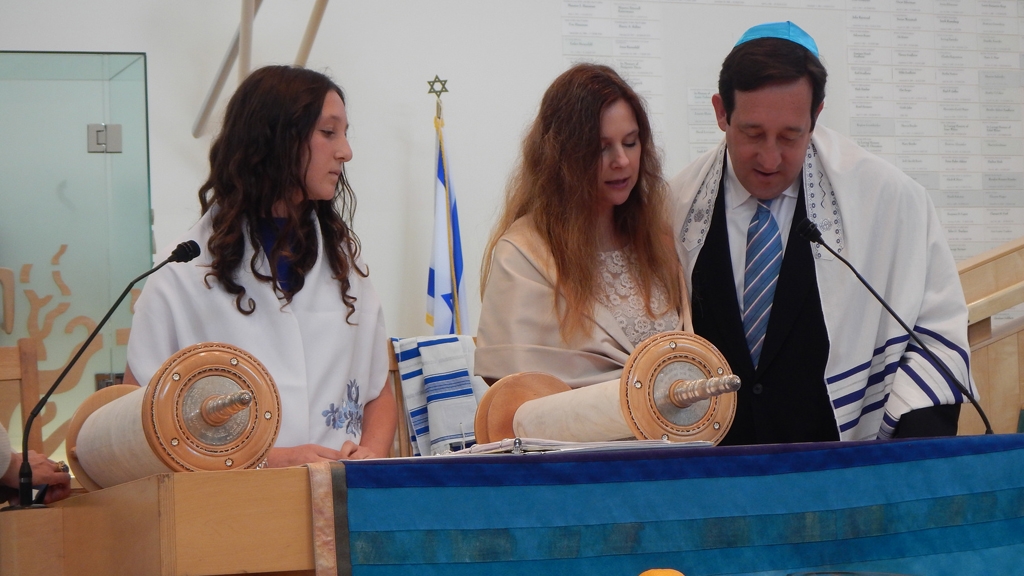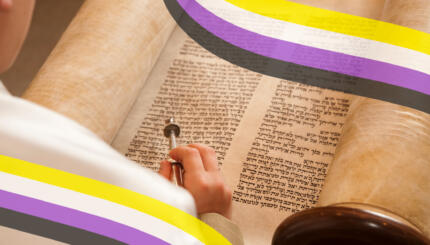In many segments of the Jewish community, girls at 12 or 13 years of age undertake exactly the same ceremony as boys. For American Jews, this process famously began in 1922 when Rabbi Mordecai Kaplan, the founder of Reconstructionism, arranged for his daughter Judith to celebrate becoming a bat mitzvah at a public synagogue ceremony.
But in fact her ceremony did not involve a full aliyah to the Torah [going up to the Torah and reciting blessings over its reading], and was thus a much-diminished version of what boys did. It bore considerable resemblance to a way of celebrating this passage in the synagogue that some girls in Italy and France had begun even earlier, and Rabbi Kaplan may have used for his daughter’s rite what he had heard or seen of an Italian ceremony.
Elsewhere, too, in Jewish life, girls entering adulthood had begun to take part in a public ceremony. Late in the 19th century, Joseph Hayyim Eliyahu ben Moshe of Baghdad, Ben Ish Hai. wrote (as translated by Howard Tzvi Adelman):
And also the daughter on the day that she enters the obligation of the commandments, even though they don’t usually make for her a seudah [celebratory meal], nevertheless that day will be one of happiness. She should wear Sabbath clothing and if she is able to do so she should wear new clothing and bless the Shehecheyanu prayer [for the One ‘Who gives us life, lifts us up, and carries us to this moment’] and be ready for her entry to the yoke of the commandments. There are those who are accustomed to make her birthday every year into a holiday. It is a good sign, and this we do in our house.

With your help, My Jewish Learning can provide endless opportunities for learning, connection and discovery.
Another bat mitzvah ceremony, in the synagogue, was celebrated in Lvov in 1902 by Rabbi Dr. Yehezkel Caro, “rabbi for the enlightened Jews.”
What gave long-term importance to Judith Kaplan’s moment was that American culture supported transforming this hesitant beginning into wholehearted change. By the end of the 20th century, in almost all non-Orthodox congregations girls were celebrating their coming of age as b’not mitzvah through much the same ceremonies their brothers experienced.
Indeed, by the end of the 20th century, many Orthodox synagogues were doing the same kind of limited ceremony short of a full aliyah that Rabbi Kaplan had originally arranged for his daughter. And even among haredi (“ultra-Orthodox”) communities, some girls’ schools were holding a special breakfast for the class of 12-year-olds, to which mothers were invited.
In some American haredi communities, each girl signs up for a Sunday near her birthday on which to have a lunch and deliver a d’var Torah [talk on her Torah portion]. Some have proposed a party where the Bat Mitzvah might separate challah [set aside a portion of the dough in remembrance of for the first time, or do another mitzvah particular to women. Chabad-Lubavitch Hasidic communities celebrate a girl’s becoming bat mitzvah with the girl choosing a teaching of the seventh Lubavitcher rebbe to learn and discuss at a gathering of her friends and family.
For more about bat mitzvah innovations in the Modern Orthodox world, click here or see the articles below:
Our Bat Mitzvah Celebration with the Community
Bat Mitzvah as Rite of Passage into Self and Community
Celebrating Our Daughters from Simchat Bat to Bat Mitzvah
Excerpted with permission from A Time for Every Purpose Under Heaven (Farrar, Straus and Giroux, LLC).
aliyah
Pronounced: a-LEE-yuh for synagogue use, ah-lee-YAH for immigration to Israel, Origin: Hebrew, literally, "to go up." This can mean the honor of saying a blessing before and after the Torah reading during a worship service, or immigrating to Israel.
bat mitzvah
Pronounced: baht MITZ-vuh, also bahs MITZ-vuh and baht meetz-VAH, Origin: Hebrew, Jewish rite of passage for a girl, observed at age 12 or 13.
challah
Pronounced: KHAH-luh, Origin: Hebrew, ceremonial bread eaten on Shabbat and Jewish holidays.
haredi
Pronounced: hah-RAY-dee, Origin: Hebrew, literally "in awe of" or "fearing" God, this means ultra-Orthodox or fervently Orthodox.
Hasidic
Pronounced: khah-SID-ik, Origin: Hebrew, a stream within ultra-Orthodox Judaism that grew out of an 18th-century mystical revival movement.
mitzvah
Pronounced: MITZ-vuh or meetz-VAH, Origin: Hebrew, commandment, also used to mean good deed.
Moshe
Pronounced: moe-SHEH, Origin: Hebrew, Moses, whom God chooses to lead the Jews out of Egypt.
Torah
Pronunced: TORE-uh, Origin: Hebrew, the Five Books of Moses.



